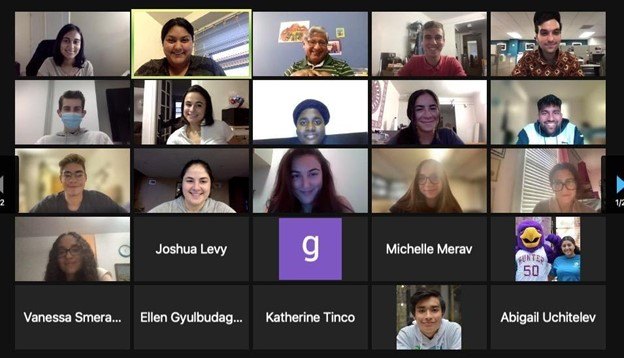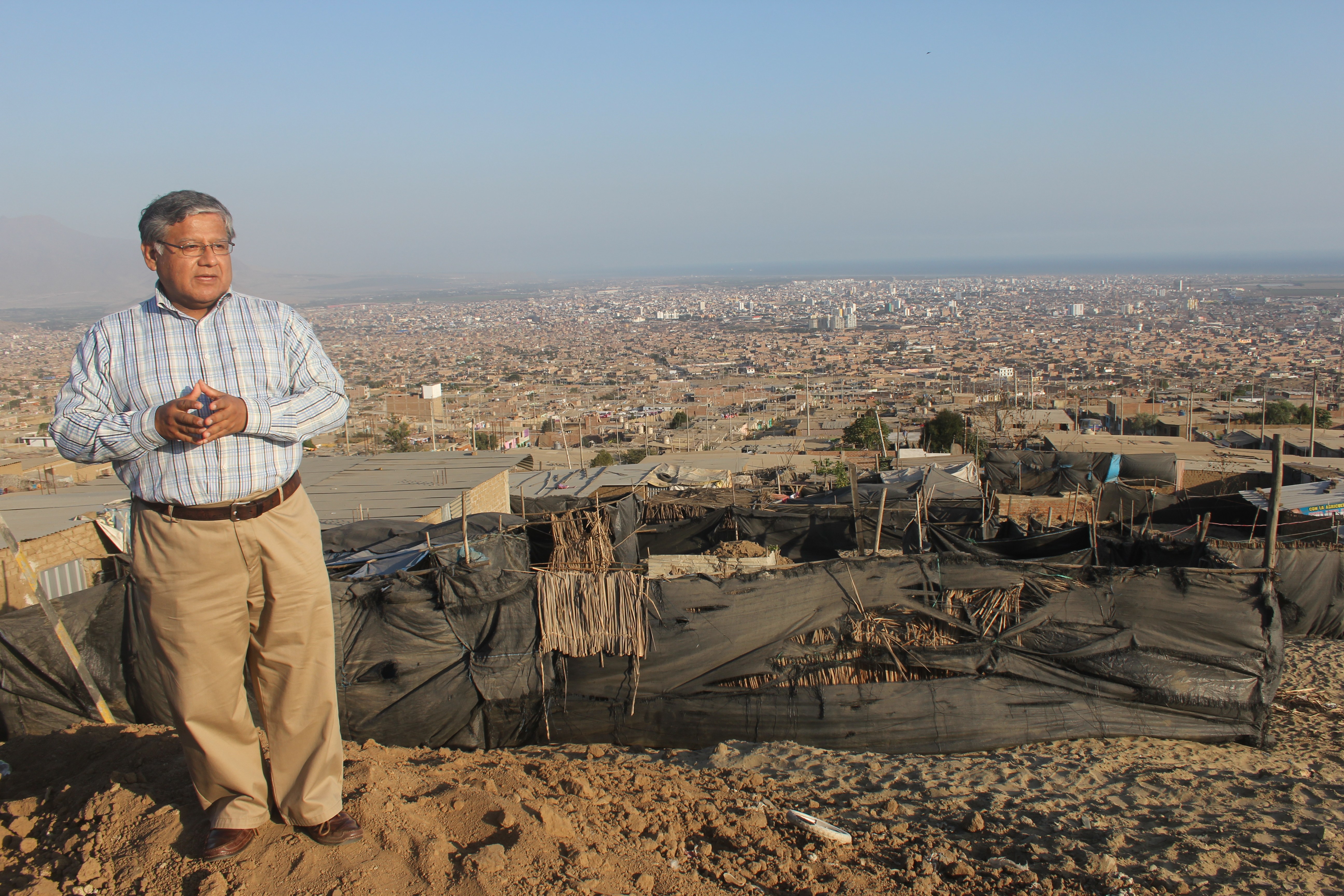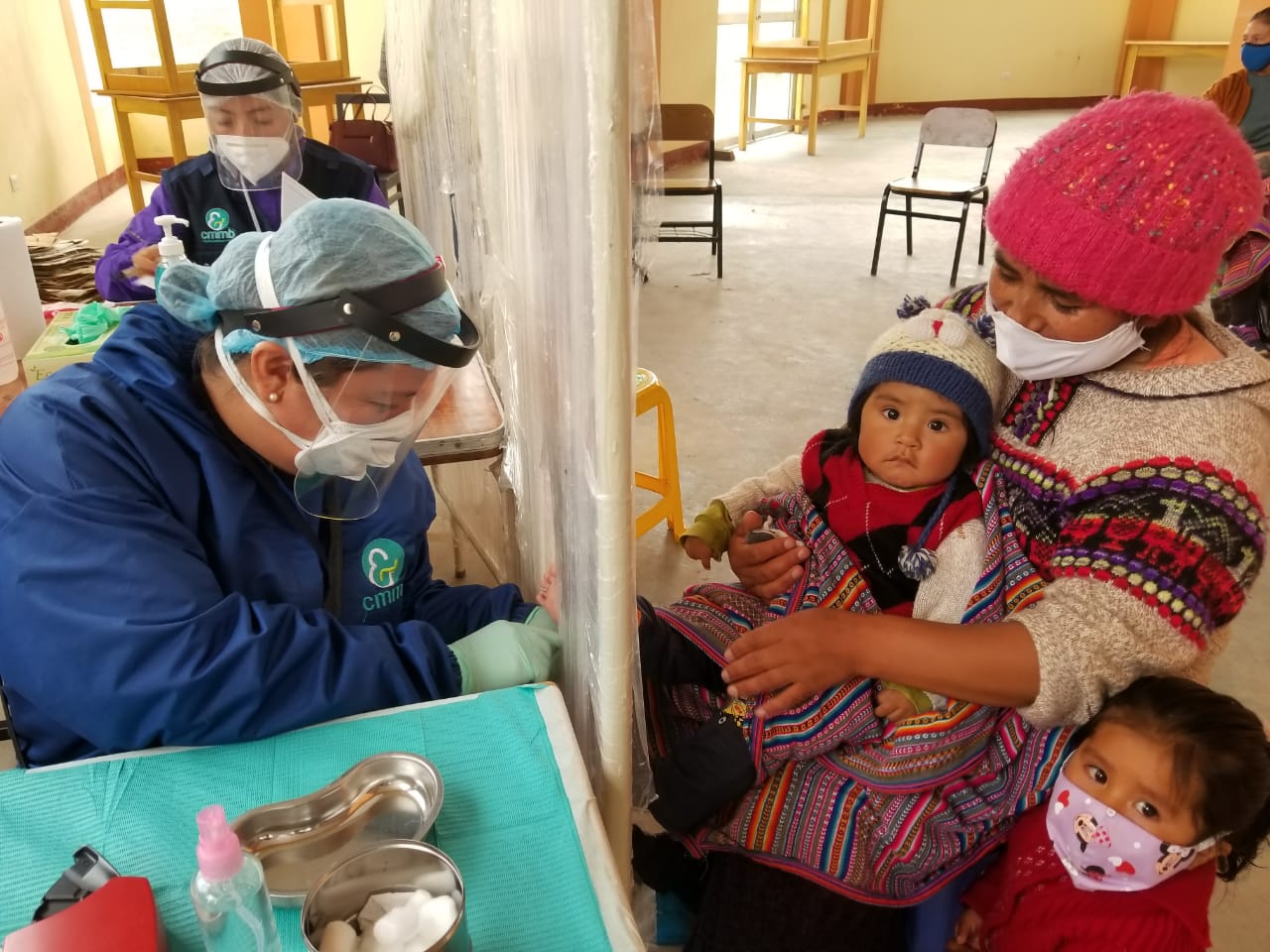CMMB x Hunter: Establishing Vaccine Equity with Dr. Ariel Frisancho

Arvind Dev is a graphic designer for CMMB x Hunter, a student-led organization that partners with CMMB to raise awareness about the health disparities women and children face around the world. In the piece below, Arvind writes about a recent virtual discussion held by CMMB x Hunter with CMMB’s Country Director for Peru, Dr. Ariel Frisancho.
As of October 2021, only 2.9% of people who reside in low-income countries have received at least one dose of a COVID-19 vaccine.
This is one of the many startling statistics that Dr. Ariel Frisancho, CMMB’s Country Director for Peru, presented to students at Hunter College during a global vaccine equity discussion held on October 21st, 2021. The discussion, hosted by CMMB x Hunter, was moderated by group president Priya Singh and vice president Sandi Bajrami.
With over 25 years of experience working to improve global health coordination and social development in Peru by emphasizing civic engagement and healthcare accountability, Dr. Frisancho had seen firsthand the suffering of the country at the hands of the pandemic. Despite a national curfew, Peru has topped the charts in excess deaths according to data collected by Financial Times.
Yet, as Dr. Frisancho points out, only 42% of people in the country are fully vaccinated compared to wealthier countries like the United States (55%), Australia (60%), and Canada (74%). Considering the human right for all to have access to essential medicines and vaccines as defined by the UN Committee on Economic, Social and Cultural Rights (CESCR), such inequities are particularly extreme.
“There’s a contradiction between the areas of most need and the location of vaccines in those areas and for those people.” —Dr. Frisancho
In the context of determinants of vaccine equity such as their development, allocation, and affordability, Dr. Frisancho highlighted the immediate need for distribution of surplus doses to countries in need as well as a ramping up of technology transfer to increase vaccine production to meet the needs of low-income countries.
But, as Dr. Frisancho noted, such efforts can only work with the right amount of planning. The inequity faced by Latin American countries is also a result of historical and systemic health inequities. Without enough resources, care that acknowledges and addresses the variance in cultural attitudes on health is scarce.
Dr. Frisancho also emphasized how the COVID-19 pandemic has exacerbated an already suffering health system in Latin American countries such as Peru. By focusing on strengthening the primary care system through civic participation and implementing universal and nondiscriminatory healthcare coverage, steps in addressing the current and broader contexts of vaccine inequity can be made.
One student asked about the individual role one could play in supporting the movement towards vaccine equity and proper allocation. Dr. Frisancho suggested local ways to approach the issue. He noted the importance of social communication with groups that have low vaccine access or high vaccine hesitancy, which has worked in Peru under Dr. Frisancho’s leadership.
“We need to bring people’s voices to the table.” —Dr. Frisancho
Another student raised the topic of vaccine hesitancy and how it could be addressed. Dr. Frisancho noted that listening and respect were key, reiterating the importance of social communication strategies. According to Dr. Frisancho, a survey done in Peru on reasons for vaccine hesitancy varied from improper explanations of the vaccine components and secondary effects to religious opposition. As such, understanding these reasons rather than using a “one size fits all” approach is essential in tackling this issue.
CMMB x Hunter is extremely grateful to Dr. Frisancho for sharing his views and experiences in promoting vaccine equity with students.

